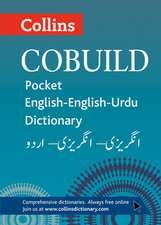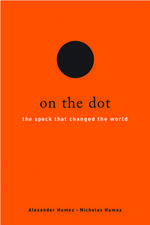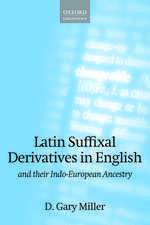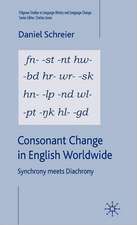Dangerous Language — Esperanto under Hitler and Stalin
Autor Ulrich Lins Traducere de Humphrey Tonkinen Limba Engleză Hardback – 20 feb 2017
| Toate formatele și edițiile | Preț | Express |
|---|---|---|
| Paperback (1) | 695.53 lei 43-57 zile | |
| Palgrave Macmillan UK – 12 iun 2020 | 695.53 lei 43-57 zile | |
| Hardback (1) | 700.94 lei 43-57 zile | |
| Palgrave Macmillan UK – 20 feb 2017 | 700.94 lei 43-57 zile |
Preț: 700.94 lei
Preț vechi: 824.63 lei
-15% Nou
Puncte Express: 1051
Preț estimativ în valută:
134.17€ • 145.78$ • 112.77£
134.17€ • 145.78$ • 112.77£
Carte tipărită la comandă
Livrare economică 21 aprilie-05 mai
Preluare comenzi: 021 569.72.76
Specificații
ISBN-13: 9781137549167
ISBN-10: 1137549165
Pagini: 272
Ilustrații: XVIII, 299 p. 9 illus., 1 illus. in color.
Dimensiuni: 148 x 210 x 24 mm
Greutate: 0.53 kg
Ediția:1st ed. 2016
Editura: Palgrave Macmillan UK
Colecția Palgrave Macmillan
Locul publicării:London, United Kingdom
ISBN-10: 1137549165
Pagini: 272
Ilustrații: XVIII, 299 p. 9 illus., 1 illus. in color.
Dimensiuni: 148 x 210 x 24 mm
Greutate: 0.53 kg
Ediția:1st ed. 2016
Editura: Palgrave Macmillan UK
Colecția Palgrave Macmillan
Locul publicării:London, United Kingdom
Cuprins
PART I: A SUSPICIOUS NEW LANGUAGE.- Chapter 1: The Emergence of Esperanto.- Chapter 2: War and its Aftermath.- PART II: ‘LANGUAGE OF JEWS AND COMMUNISTS’.- Chapter 3: The Rise of a New Enemy.- Chapter 4: ‘An Ally of World Jewry’.- PART III: ‘LANGUAGE OF PETTY BOURGEOIS AND COSMOPOLITANS’.- Chapter 5: Finding a Place for Esperanto in the Soviet Union.- Chapter 6: Schism and Collapse.- Chapter 7: Socialism and International Language.
Recenzii
“Humphrey Tonkin’s English translation of Ulrich Lins’ work … offers a comprehensive analysis of the advent and diffusion of the International Language, charting its development from the embryonic wrangling of creator Lazar Zamenhof amidst the pogroms of the Russian Empire, to the language’s reactionary reception by Nazi and Soviet authorities. … Lins explores the invented language’s history methodically and intimately, resulting in a text that is admirably accessible to the interested layperson and the invested academic alike.” (David Selfe, The Kelvongrove Review, Issue 16, June, 2017)
Notă biografică
Ulrich Lins received his doctorate at the University of Cologne, Germany, with a dissertation on Japanese nationalism (published in 1976). For thirty years he worked for DAAD, the German Academic Exchange Service in its headquarters in Bonn, and served two tours of duty as head of its office in Tokyo. He has edited numbers of books in German and Japanese on German-Japanese relations and on Germany following reunion. The present volume, written originally in Esperanto, has appeared in German, Italian, Japanese, Korean, Russian, and Lithuanian translations.
Humphrey Tonkin is President Emeritus of the University of Hartford, USA, where he served as University Professor of Humanities. He studied English and comparative literature at Cambridge and Harvard (Ph.D. 1966) and has written widely on literary topics and on international education and language policy. He has published numbers of translations from English to Esperanto and from Esperanto to English.
Textul de pe ultima copertă
This book examines the rise of the international language Esperanto, launched in 1887 as a proposed solution to national conflicts and a path to a more tolerant world. The chapters in this volume chart the emergence of Esperanto as an answer to a widespread democratic desire for direct person-to-person international communication regardless of political boundaries. Its early success was limited, mostly because of the Czarist régime’s suspicion of direct communication with foreigners, and, later, similar suspicion by dictatorial régimes generally. As speakers of a “dangerous language,” its adepts were harassed and persecuted, especially in Germany and the Soviet Union. This book argues that the fate of Esperanto over the 130 years of its existence serves as a barometer to measure the degree to which régimes tolerate spontaneous personal contact with other countries and allow the pursuit of self-education outside prescribed national or ideological constraints. This book will appeal to awide readership, including linguists, historians, political scientists and others interested in the history of the twentieth century from the unusual perspective of language. This volume is complemented by the sister volume Dangerous Language – Esperanto and the Decline of Stalinism which offers a concentration on the Cold War history of Esperanto in Eastern Europe.
Caracteristici
Offers a compelling, rigorously-documented account of Esperanto’s remarkable survival among the nightmares of communism and fascism Presents a story of the language movement that outlasted the particular political ideologies of modern nation states Examines the plight of individual Esperantists caught in the vice of repressive, nationalistic ideologies













